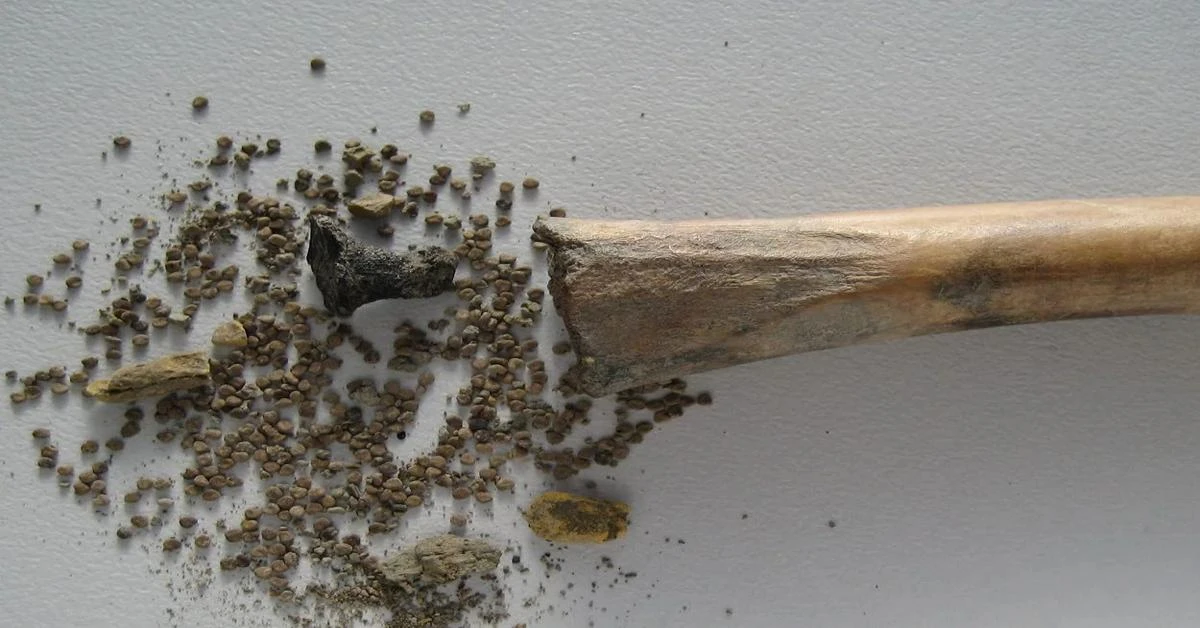Carved bone containing medicinal herb found in Roman settlement

A carved bone containing black henbane seeds has been discovered, providing the first evidence of the use of the plant as a narcotic drug in the Roman period
Excavations at the Roman site of Houten-Castellum in the Netherlands have unearthed a hollowed-out bone containing hundreds of black henbane seeds coated with tar.
The research team, led by Dr. Maaike Groot from Freie Universitat Berlin, published the results in the journal Antiquity. They compared black henbane seed samples found at other sites to discern any correlation. The team’s findings revealed that the discovery at Houten-Castellum marked the first instance of black henbane found in a Roman vessel.
Henbane, also known as stinking nightshade, is a highly poisonous plant used to make anesthetic potions and for its psychoactive properties that cause visual hallucinations.
About the use of henbane in antiquity, Pliny, one of the historians of the period, says that “it is in the nature of wine and therefore offensive to the understanding.”
In addition, the ancient physician, pharmacologist and botanist Pedanius Dioscorides recommended henbane as a sedative and analgesic.
“Our study contributes to the debate on how to distinguish between a weed found naturally in archaeobotanical communities and a plant deliberately used by humans,” says Dr. Groot.
“We argue that future finds of black henbane should be studied taking into account the context of the find and its relationship with other medicinal plants.”
Source: Newsroom



